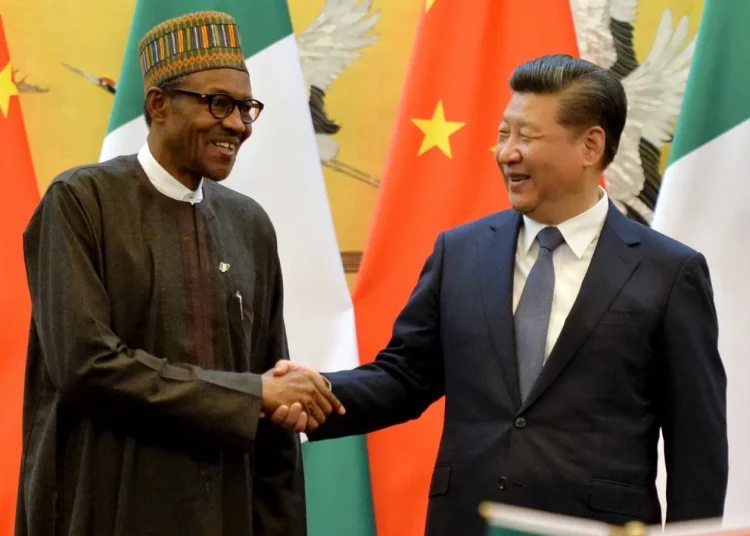Nigeria and some other countries in the Sahel Region are ravaged by the activities of terrorist elements operating on ungoverned spaces for so many years. These security threats are mainly carried out by the Boko Haram terrorists and their allies of the Islamic State of West Africa (ISWAP).
In Nigeria, the Boko Haram activities has mutated and morphed into criminal franchise where bandits and kidnappers have turned the northern parts into domains of misery, death and destruction. Over 100,000 people have been killed and nearly 2.5 million people displaced in Nigeria since 2009.
Massive efforts against Boko haram yielded some fruitful results as its franchise as a domestic phenomenon was crippled, their supply lines dismantled and the financial structures and recruitment framework that sustained it was almost decimated until the situation in Libya changed all that.
The collapse of the Muamar Gaddafi government in Libya in 2011 and the free flow of small arms and light weapons from that beleaguered North African country led to a resurgence of the terrorism and the banditry that accompanied it. Today, Nigeria and the other countries in the Sahel have battled this scourge but the situation is going on unabated.
However, the recent proposal of a Global Security Initiative (GSI) by the Chinese government raises hope of a new dimension in the global quest to curb terrorism. The GSI was proposed by Chinese President Xi Jinping in his speech at the annual Boao Forum held in Beijing, China recently. This initiative accentuated the well thought -out strategy to fight terrorism around the world by China, which include comprehensive economic and social development that will be supported by the Chinese Government.
It was therefore based on this proposal that Nigerian experts in international policies and security have urged the Nigerian Federal Government to take advantage of the Chinese Initiative in curtailing security threat across the country.
The Center for China Studies, an Abuja-based intellectual think, which organized a roundtable in collaboration with Chinese Embassy in Abuja on Wednesday, said the initiative is worth the scrutiny and interrogation considering the confluence of factors fuelling tensions and feeding the increasing security including governance and productive capacity deficits across the Sahel.
The GSI is part of the broader development initiatives to improve the economies of Nigeria and the Sahel region as well as the rest of the world. One of the areas of focus is the Government’s Belt and Road Initiative (BRI) which experts believe could be used to rebuild economies battered by the impacts of climate change.
During the roundtable Director of the Center, Mr Charles Onunaiju, said the BRI is an existing international framework that could support Nigeria and the Sahel nations to reclaim the receding Lake Chad which can be done by mobilising funds from the Initiative.
The roundtable was aimed at proffering solutions to the insecurity ravaging the Northern parts of Nigeria as a result of the rapid receding of the once vibrant Lake Chad, which had provided economic livelihood for about 40 million people.
Onunaiju explained that the framework comprised of cooperation across maritime, overland, cyberspace and even air connectivity and air links.
He said, “I think that the Lake Chad falls into the area of maritime cooperation and we can engage the Belt and Road Initiative and the enormous liquidity it has to address the challenge of Lake Chad.”
Onunaiju highlighted the availability of a whole range of Belt and Road projects already existent in the country, particularly overland projects such as railway and power plants, saying “these are all part of the Belt and Road Initiative.”
He pointed out that within the framework of the Belt and Road Initiative, Chinese finance institutions are bringing a lot of funds on the table to support the issues.
He said: “I think we can leverage our engagement, we can leverage our goodwill and cooperation with China and put the Lake Chad issue. Not only is it a security issue, it is also a human security issue; it is a livelihood issue.
“So, within the broad context of our engagement with China, spanning cooperation in poverty alleviation, infrastructure, construction, security, we can put the Lake Chad issue on the table and I am sure we can get a good listening.”
Head of the Political Section, Embassy of the People’s Republic of China in Nigeria, Mr. Du Sheng, in his remarks, pointed out the six core concepts of President Xi Jinping’s Global Security Initiative and how to implement them.
He also said that Nigeria and China can cooperate in the area of security both at the bilateral and multilateral levels adding that both countries can employ technology to tackle the menace.
The event had as its theme: “Global Security Initiative and the implications for Overcoming Security Challenges in the Sahel and Nigeria.”
One of the scholars at the event, Professor Udenta Udenta, in his submission, said that policies of governments should be Knowledge -driven with regards to the lingering issues of insecurity in the Sahel, adding that sustainable development is only possible with good governance.
“Governance has to be cohesive to win the people’s confidence. If governance model becomes anti-people and unprogressive, there is no way development can thrive,” he said.
It is hoped that the Nigerian government will take advantage of its robust relations with China to benefit from the GSI when the implementation starts.






